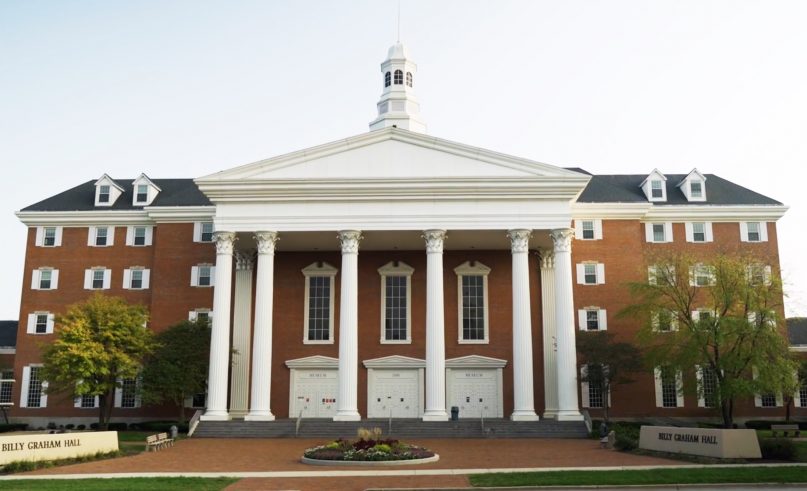(RNS) — Wheaton College, a flagship evangelical school in Wheaton, Illinois, recently updated its student and employee handbooks to restrict employees’ ability to designate personal pronouns and to elaborate on the school’s position on trans/nonbinary students and faculty.
“The College does not permit the statement of preferred personal pronouns by employees when conducting College business, when on a platform where they are publicly identified as College employees, and/or when using the College brand in print or digital media, except when employees are required to submit such pronouns when registering for a conference or for membership in a professional organization,” new language in the student handbook says.
Updates to the handbook, which were approved in October and shared with employees in December and with students in January, clarify that the college does not endorse the statement of preferred pronouns by employees or students of Wheaton. While the handbook exclusively recognizes the pronouns he/him/his and she/her/hers as reflective of the “created biological binary,” it does not appear to explicitly prohibit students from using or stating preferred pronouns, including they/them pronouns.
In an email to Religion News Service, a spokesperson for the college confirmed that Wheaton had updated its policy on gender and sexuality in both the student and employee handbooks, the latter of which is not publicly available. “Although it had been more than a decade since the policy was last updated, substantive changes to the policy were minimal,” the spokesperson wrote. “The biblical principles and theological convictions on gender and sexuality articulated in the College’s Statement of Faith and Community Covenant have not changed.”
Previous versions of the student handbook indicate, and the new language affirms, that Wheaton College “considers the decision to undergo a medical transition or to engage in other persistent actions or behaviors at variance with one’s birth sex” to violate the school’s theological commitments. However, the new language goes on to say the college would consider hiring or enrolling people who’ve transitioned if it does not violate the college’s religious convictions (for instance, if the transition took place before that person became a Christian, or to address a unique medical situation). The handbook does not define what falls within its definition of a “medical transition” from a person’s “birth sex.”
Both the previous and current versions of the student handbook make clear that the college believes God created sex to occur in the context of a marriage between a man and a woman and prohibit “same-sex sexual behavior,” including marriages, civil unions or dating relationships. The handbook also has and continues to clarify that Wheaton hopes to be a loving community that respects and cares for all members, including those who “experience incongruity between birth sex and gender identity.”
On Monday (Jan. 8), a new Instagram account called Wheaton Watchdog, which says it was created by Wheaton alumni, posted a screenshot of the updated language in the student handbook.
“Even as a ‘private institution’, the updated rules and guidelines fall under the umbrella of medical discrimination, on top of being incredibly hateful & transphobic,” the photo caption says. “There have always been queer people at Wheaton and the school continues to ensure we will never feel welcome or safe on campus.”





